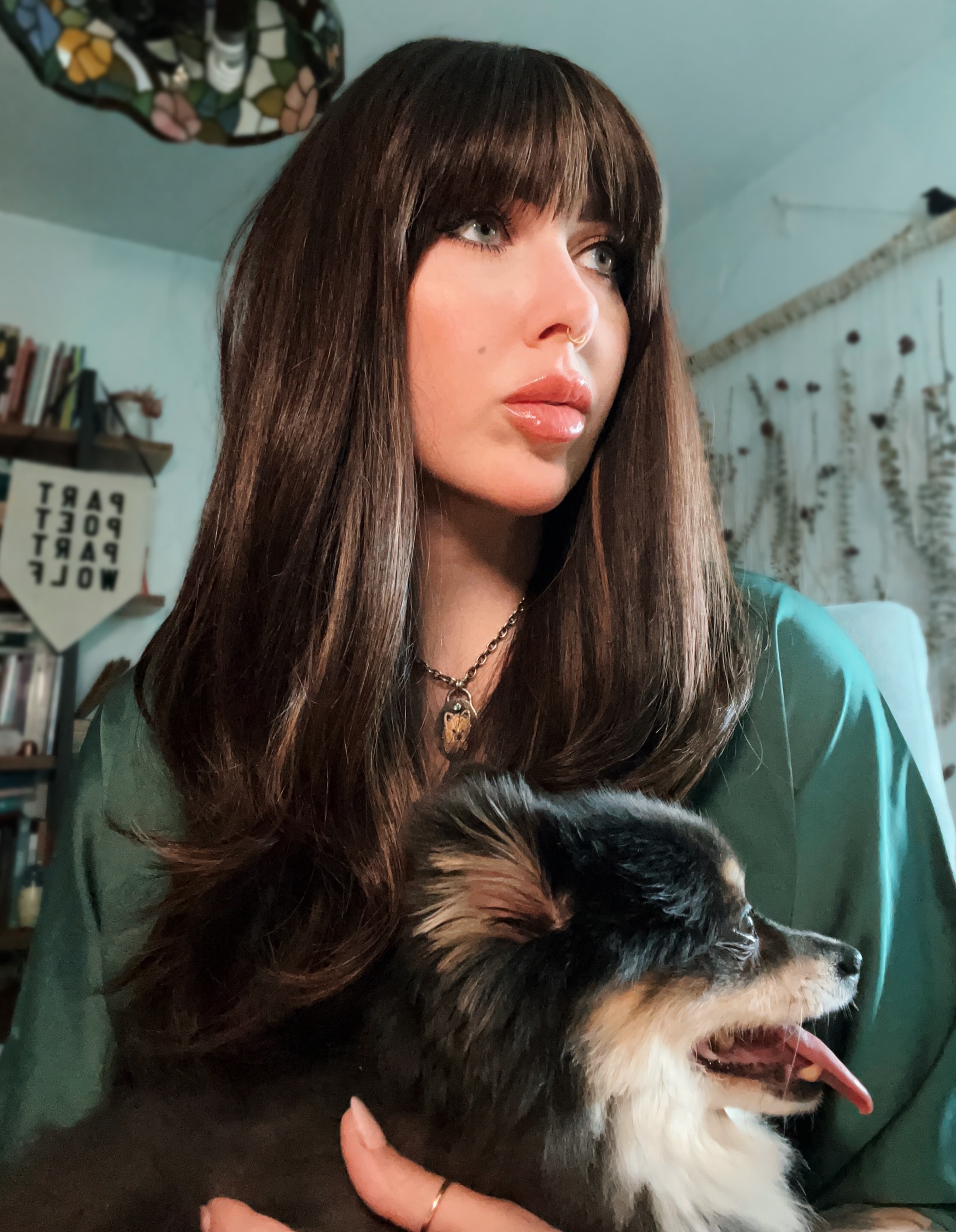FAQs & Poetry Prompts
Learn more about me, my work, and my favorite writing prompts.
Get to Know Me
-
Break your heart. Say something that matters. Be expansive. Be feral. Ask questions. Question everything.
-
The opening poem sets the tone for the collection. It’s the lens through which you want the reader to encounter and understand every subsequent poem. And the last poem is what you want the reader to take away from the book. Those are two different objectives to me: one is your Virgil and one is your destination.
I also like to think about the opening poem as the question of the book and the closing poem as the reflection. They should speak to each other, but there has to be progression and distance between them.
-
I was recently diagnosed with lupus, and so right now I’m obsessed with how disability, disfigurement, and Otherness is portrayed in media and literature. I’m currently writing about losing my hair to lupus and the significance of hair across cultures, religions, and imaginations.
I am also forever and unapologetically obsessed with my dogs.
-
Capricorn. It shows.
-
Help generate new poems via thoughtful prompts and discussion.
Facilitate actionable feedback on poems so the author understands how to better achieve their goals for the piece.
Cultivate a supportive space where writers can be in community with other invested, insightful poets.
Above all, I believe workshops should be grounded in mutual respect and care for each other and each other’s work.
Poetry Prompts
-
Describe a moment that is meaningful to you with as much sensory detail as possible: Who was there? Where was it? What physical objects were around you? What smells, sounds, textures, etc.? After you’ve described this moment as specifically as possible, write a poem that gives the reader directions to this moment. Use your sensory details as landmarks and guideposts.
Write a poem that’s cyclical in nature. For example, a word reappears with different meanings or in different forms, elements of the poem repeat, or each stanza represents one part of a particular cycle (some example cycles to get your wheels turning: seasons, musical intervals, the water cycle, harvests, planetary cycles, economic cycles, etc.). The poem must have one interruption. Make sure the poem is not a form that already exists (e.g., ghazal, sestina, etc.), though you can borrow elements that suit your purposes.
Think of an event or an occurrence. Then create a poem in the form of a numbered list of facts inspired by this event. Each line is a description of the facts, which can be real or invented. The poem must end in anaphora (the repetition of a word or phrase at the beginning of successive clauses).
Write a poem about a color that dominates an environment you care about. The catch is you cannot use any words for colors in the poem—no green, blue, pink, gold—not a word. Rely on descriptions to convey the color you choose. Make sure the reader is aware of why this color is important to the speaker of the poem.
Write an elegy for the last animal of your choice. Use research about the animal and its environment to develop your poem. Include its scientific name at some point in the poem.
Write a love poem with harsh-sounding words. Feel free to privilege music over meaning and see how you can use sound to create a certain emotional logic.

